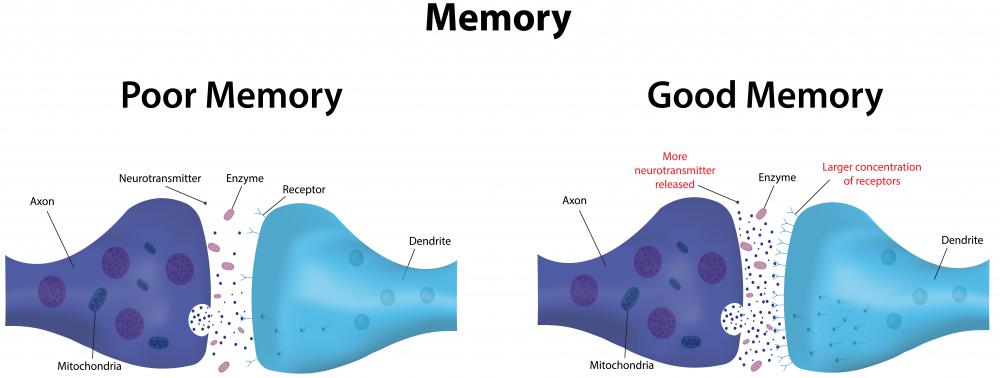At WiseGEEK, we're committed to delivering accurate, trustworthy information. Our expert-authored content is rigorously fact-checked and sourced from credible authorities. Discover how we uphold the highest standards in providing you with reliable knowledge.
What Are the Different Types of Anticholinergic Medications?
Some anticholinergic medications are natural plant derivates, though others are semisynthetic or synthetic formulations. Certain medications belonging to this category are designed to produce a systemic response, and others are created to control function in a particular body system or organ. Health care providers frequently prescribe anticholinergic medications for their antispasmodic or secretion decreasing properties.
Anticholinergic medications bind to the muscarinic and nicotinic neural receptors throughout the body. This action blocks access to the neurotransmitter acetylcholine, inhibiting the chemical’s activity in the central nervous system, skeletal and vascular muscle tissues, and internal organs. Anticholinergics also affect excretory glandular tissue. Though cholinergic blocking medications may be created for action on a specific organ, they often carry systemic effects because of the vast number of receptors involved in attachment.

Physicians may prescribe anticholinergic medications to produce a particular effect in the central nervous system. Biperiden hydrochloride, for example, is prescribed to reduce the peripheral muscle spasticity or rigidity often associated with Parkinson’s disease. Higher doses of anticholinergic medications may produce jerking, shaking, and a lack of physical coordination along with drowsiness. Scopolamine diminishes the vestibular nerve impulses to the brain that signal nausea and vomiting and is sometimes used prior to surgery to negate the effects of anesthesia.

Ophthalmologists frequently use tropicamide, which temporarily paralyzes the iris sphincter and the ciliary muscle, dilating the pupil. Until the effects of the medication wear off, patients might also experience blurred vision because of their reduced ability to accommodate normally. Patients diagnosed with chronic obstructive pulmonary diseases, such as asthma, bronchitis, or emphysema, often use inhalers containing anticholinergic medications. Ipratropium bromide, for instance, relaxes and dilates the lung bronchioles while decreasing the amount of obstructive secretion.

Dicyclomine and dicycloverine relax the smooth muscle of the gastrointestinal tract, along with decreasing secretions of the bowel and stomach. Physicians might use these anticholinergic medications for symptomatic relief of the painful spasms associated with irritable bowel syndrome. The medications also reduce peristalsis in the bowel and may cause constipation. Patients suffering from bladder incontinence may take oxybutynin chloride, which relieves bladder spasms by relaxing the smooth muscle, but also increases the amount of sphincter constriction.

Anticholinergic medications can decrease heart rate, but can also increase the rate at higher dosages. The medications generally inhibit acetylcholine effects on the heart, but in doing so, also block impulses from the vagal nerve on the sinoatrial and atrioventricular pacemaker nodes, causing an increased heart rate. Cardiologists might use atropine in cases of bradycardia or sinus node dysfunction. The military also uses atropine to counteract the effects of chemical nerve agents.
AS FEATURED ON:
AS FEATURED ON:


















Discuss this Article
Post your comments